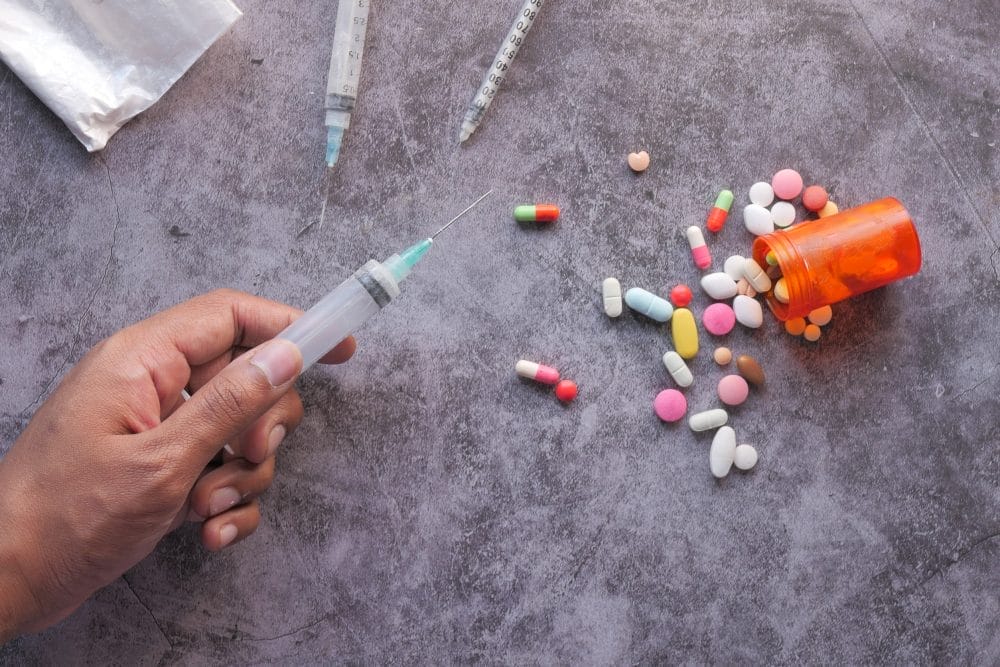In modern America, the solution to nearly every health complaint seems to come in a bottle. From anxiety to acid reflux, doctors are quick to write prescriptions, and patients are equally quick to fill them. The pharmaceutical industry thrives on this cultural dependence, shaping healthcare around chemical intervention rather than prevention.
Convenience has replaced caution, with little long-term consideration for how these drugs affect the human body over time. This normalization of daily pill consumption is subtly but steadily reshaping what it means to be healthy in the U.S.
Prescribing Patterns: Too Much, Too Fast
Primary care visits often end with a prescription pad in hand, even when lifestyle changes might offer better, safer outcomes. Studies have shown that Americans are prescribed more medications, and at earlier ages, than most other developed nations. This includes psychiatric drugs, opioids, statins, and medicines for chronic conditions like diabetes and hypertension. Instead of digging into root causes—like diet, stress, or environment—doctors are pressured by time, insurance systems, and pharmaceutical reps to medicate quickly. As a result, patients are increasingly treated as symptom clusters rather than whole people.
Side Effects: The Hidden Burden
While medications are meant to treat specific conditions, they often come with a host of side effects that can be just as disabling as the illness itself. Fatigue, dizziness, cognitive impairment, weight gain, and sexual dysfunction are only a few of the most common adverse effects. Ironically, these symptoms can mimic or exacerbate the original issue, prompting additional prescriptions in what becomes a cascade of chemical dependency. Over time, patients may feel sicker rather than better, as their bodies attempt to navigate this pharmaceutically induced labyrinth. It’s not uncommon for individuals to be taking five or more medications just to manage the effects of the original one.
Mental Health and Medication: A Double-Edged Sword
The rise in psychiatric medication prescriptions raises concerns about whether Americans are being medicated into emotional flatlines rather than genuine mental wellness. Antidepressants, anti-anxiety medications, and antipsychotics are more widely prescribed than ever, including to children and adolescents. These drugs can help in acute situations, but long-term use may dampen emotional resilience or create dependency. Many users report feeling numbed, disconnected, or stuck in a medicated haze, unable to engage with life or build natural coping mechanisms fully. This pharmaceutical shortcut to mental wellness may be inadvertently contributing to increased disability claims and reduced societal productivity.
From Treatment to Trap: The Disability Spiral
When medications lead to additional health complications or make patients feel worse, they often become trapped in a cycle of deteriorating function. Chronic fatigue, brain fog, and musculoskeletal issues—often drug-induced—can reduce a person’s ability to work or manage daily life. Eventually, these patients may seek Social Security Disability Insurance (SSDI), not because their original condition was inherently disabling, but because the treatment path worsened their overall health. Data suggests that a growing number of disability claims are tied to conditions either caused or exacerbated by long-term medication use. What began as an effort to feel better ends in a life defined by medical appointments, pillboxes, and paperwork.
Big Pharma’s Influence on American Medicine
The pharmaceutical industry exerts immense control over how medicine is practiced and perceived in the United States. Through aggressive marketing, direct-to-consumer advertising, and medical education funding, drug companies ensure their products stay front and center in the minds of doctors and patients. Many physicians receive incentives, consciously or not, to favor newer, more expensive medications over older or non-pharmaceutical approaches. Clinical guidelines are often shaped by panels with financial ties to drug manufacturers, further blurring the lines between science and sales. As a result, the health system tilts toward prescriptions first, and holistic care second, if at all.
Alternative Paths: What’s Being Ignored
While medications can be life-saving in many scenarios, the overreliance on them means non-drug therapies are frequently overlooked. Nutritional counseling, physical therapy, mindfulness practices, sleep hygiene, and cognitive-behavioral therapy often deliver better outcomes for many chronic conditions. Yet these alternatives are underutilized due to systemic barriers, including inadequate insurance coverage and a lack of time during standard medical visits. Patients who might benefit from lifestyle interventions instead find themselves handed pills and sent on their way. This lack of integrative care feeds into the broader cycle of dependency and disability.
The Young and the Medicated: A Warning Sign
Children and teenagers in the U.S. are being prescribed psychiatric and behavioral medications at unprecedented rates. ADHD drugs, antidepressants, and antipsychotics are being given to developing brains without full understanding of their long-term impact. Some kids begin medication regimens before they even reach kindergarten, setting the stage for lifelong dependence on pharmaceutical solutions. While some cases warrant medical treatment, the volume and speed of diagnosis raise serious concerns about overpathologizing normal behavior. If the next generation grows up seeing pills as the first line of response, the cycle of overmedication may only deepen.
The Cost of Overmedication: Financial, Physical, and Social
Beyond the health consequences, the economic impact of overmedication is staggering. Americans spend more on prescription drugs per capita than any other country, yet don’t enjoy better health outcomes. Many people deplete their savings paying for medications that ultimately decrease their quality of life. On a broader scale, the nation loses productivity as more people exit the workforce due to medication-related health declines. Overmedication is not just a personal burden—it’s a societal one with ripple effects across the economy and healthcare system.
Reclaiming Health: A Cultural Reckoning Ahead
The path forward may require a cultural reset that redefines what health looks like and how it’s achieved. Instead of chasing symptoms with prescriptions, healthcare must begin to prioritize prevention, root-cause analysis, and integrative approaches. Doctors need the time, resources, and training to explore lifestyle factors, not just prescribe quick fixes. Patients, too, must be empowered to question their treatments and seek second opinions when medications feel like a crutch instead of a cure. Without this shift, Americans risk being medicated not into health, but into early and preventable disability.
Now It’s Time For Your Thoughts
Are Americans truly being overmedicated into early disability, or is the system just trying to keep up with a population in crisis? The issue is complex, but the impact is real—and growing. If this topic resonates or you’ve seen its effects firsthand, consider adding your thoughts below.
Your voice matters whether you’re a patient, provider, or simply concerned. Please share your experiences and help expand the dialogue around one of our time’s most pressing healthcare issues.
Read More
Reports of Patient Safety Violations at U.S. Hospitals: What Inspections Reveal
10 Health Supplements That Doctors Want You To Stop Taking Immediately







